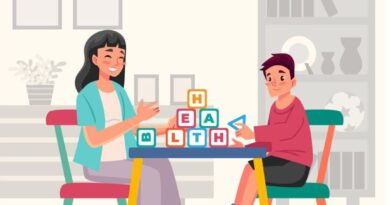Does My Child Have ADHD? Discover the Benefits of Online Counselling for ADHD
Understanding ADHD: Symptoms and Diagnosis
The neurodevelopmental disorder known as Attention Deficit Hyperactivity Disorder (ADHD) can affect both adults and children. It is characterized by symptoms such as inattention, hyperactivity, and impulsivity. If you suspect that your child may have ADHD, it is important to understand the symptoms and seek a proper diagnosis.
Children with ADHD often have difficulty paying attention, following instructions, and sitting still. They may be easily distracted and have trouble organizing tasks. In addition, they may exhibit impulsive behaviors, such as interrupting others or acting without thinking.
Diagnosing ADHD can be challenging as the symptoms may vary from child to child. It requires a comprehensive evaluation by a healthcare professional, such as a pediatrician or a child psychologist. Through a series of assessments, including interviews with parents, teachers, and observations of the child’s behavior, a diagnosis can be made.

Challenges of ADHD Diagnosis in Children
Children’s ADHD diagnoses might be difficult to make. One of the challenges is that the symptoms of ADHD can be similar to those of other conditions, such as anxiety or learning disabilities. This makes it important to rule out other possible causes before making a definitive diagnosis.
Another challenge is the variability of symptoms. Some children with ADHD may exhibit primarily inattentive symptoms, while others may display predominantly hyperactive and impulsive behaviors. This variability can make it difficult to identify and diagnose ADHD accurately.
Furthermore, ADHD symptoms may change over time. What may appear as typical ADHD behavior in early childhood may evolve into different patterns as the child grows older. This highlights the importance of ongoing evaluation and assessment to ensure an accurate diagnosis and appropriate treatment.
Benefits of Online Counselling for ADHD
Online counselling for ADHD has emerged as a convenient and effective option for individuals seeking support for various mental health concerns, including ADHD. There are several benefits to consider when exploring online counselling as a resource for ADHD diagnosis and management.
Firstly, online counselling offers accessibility. It removes geographical restrictions and enables people to get expert assistance while lounging in their own homes. This is particularly beneficial for families with limited access to specialized ADHD services in their local area.
Secondly, online counselling provides flexibility. Sessions can be scheduled at convenient times, allowing for greater flexibility in managing a busy schedule. This is especially advantageous for parents who may find it challenging to attend in-person appointments due to work or other commitments.
Additionally, online counselling offers a safe and confidential environment. Children with ADHD may feel more comfortable discussing their symptoms and concerns in the privacy of their own home, away from the potential stigma associated with seeking help for mental health issues.
Introduction to TalktoAngel: An Online Counselling Platform
TalktoAngel is an Online counselling platform that specializes in providing support for individuals with ADHD. It offers a range of services, including assessments, therapy sessions, and educational resources.
The platform is designed to be user-friendly and accessible, with a team of qualified professionals who specialize in ADHD diagnosis and management. TalktoAngel ensures that individuals receive personalized care and support tailored to their specific needs.
By utilizing secure video conferencing technology, TalktoAngel allows for face-to-face interaction between clients and therapists, replicating the experience of an in-person session. This ensures a high level of engagement and connection during the counselling process.
How Online Counselling can Help in ADHD Diagnosis
Online counselling can play a crucial role in the diagnosis of ADHD. Through comprehensive assessments and evaluations conducted by qualified professionals, the platform can help determine if a child meets the diagnostic criteria for ADHD.
TalktoAngel utilizes various assessment tools, including questionnaires and interviews, to gather information about the child’s behavior and symptoms. This information is then analyzed and interpreted by the professionals to make an accurate diagnosis.
The convenience of online counselling allows for the collection of data from multiple sources, such as parents, teachers, and the child themselves. This comprehensive approach increases the accuracy of the diagnosis by providing a more complete picture of the child’s behavior in different settings.
Furthermore, online counselling offers ongoing support and monitoring. Once a diagnosis is made, TalktoAngel provides a range of therapeutic interventions and strategies to help manage ADHD symptoms effectively. Regular follow-up sessions allow for the monitoring of progress and adjustment of treatment plans as needed.
Online Counselling Techniques for Managing ADHD Symptoms
Online counselling offers a variety of techniques and strategies to help individuals manage their ADHD symptoms effectively. These techniques can be applied both during therapy sessions and in day-to-day life to promote better functioning and well-being.
One technique commonly used in online counselling is cognitive-behavioral therapy (CBT). CBT helps individuals identify and change negative thought patterns and behaviors that contribute to ADHD symptoms. It focuses on developing coping skills and improving executive functioning, such as time management and organization.
Another effective technique is mindfulness-based therapy. Mindfulness helps individuals with ADHD increase their awareness of the present moment and develop an accepting and non-judgmental attitude towards their thoughts and emotions. This can lead to improved focus, self-regulation, and overall well-being.
In addition, online counselling may incorporate parent training and education. Parents play a crucial role in supporting their child with ADHD, and online counselling can provide them with the necessary tools and strategies to effectively manage their child’s symptoms. This may include behavior management techniques, communication skills, and creating supportive home environments.
Success Stories: Real-life Examples of Online Counselling for ADHD
Online counselling has proven to be effective in helping individuals with ADHD improve their functioning and overall well-being. Numerous success stories highlight the positive impact that online counselling can have on individuals with ADHD and their families.
One success story involves a young boy who was struggling with inattention and impulsivity in school. Through online counselling, he received a comprehensive assessment and was diagnosed with ADHD. With the support of his therapist and the implementation of strategies learned in therapy, he experienced significant improvements in his academic performance and social interactions.
Another success story involves a teenager who was facing challenges with time management and organization due to ADHD. Through online counselling, she learned effective coping skills and developed a better understanding of her strengths and weaknesses. As a result, she was able to achieve academic success and build healthy relationships with her peers.
These success stories demonstrate the transformative power of online counselling for individuals with ADHD. By providing personalized support and evidence-based interventions, online counselling can help individuals overcome challenges and reach their full potential.
Tips for Parents: Supporting Children with ADHD through Online Counselling
As a parent, there are several ways you can support your child with ADHD through online counseling. To help you maximize the resources at your disposal, consider the following advice:
- Be actively involved in the counselling process. Attend sessions with your child and actively participate in discussions and activities. This will help you gain a better understanding of your child’s challenges and learn strategies to support them effectively.
- Implement the strategies learned in therapy at home. Consistency is key when managing ADHD symptoms. Work closely with your child’s therapist to implement behavior management techniques and create a supportive environment that promotes their success.
- Communicate regularly with your child’s therapist. Online counselling allows for ongoing communication between parents and therapists. Take advantage of this opportunity to share updates, ask questions, and seek guidance on how to best support your child’s progress.
- Educate yourself about ADHD. The more you know about ADHD, the better equipped you will be to support your child. Take advantage of the educational resources available through online counselling platforms like TalktoAngel to expand your knowledge and understanding.
Exploring Other Resources for ADHD Support
While online counselling can be a valuable resource for ADHD support, it is important to explore other resources as well. The following are some further options to think about:
- Local support groups: Joining a support group for parents of children with ADHD can provide an opportunity to connect with others who are going through similar experiences. Sharing experiences, strategies, and resources can be immensely helpful in navigating the challenges of ADHD.
- Educational resources: There are numerous books, websites, and online courses available that provide valuable information and strategies for managing ADHD. These resources can enhance your understanding of ADHD and offer practical tips for supporting your child.
- School accommodations: Work closely with your child’s school to ensure that appropriate accommodations are in place to support their learning and development. This may include individualized education plans (IEPs), specialized instruction, and access to support services.
- Medical professionals: Consult with your child’s pediatrician or psychiatrist to explore medication options if appropriate. Medication can be an effective complement to therapy and behavioral interventions in managing ADHD symptoms.
Conclusion: Embracing the Benefits of Online Counselling for ADHD
In conclusion, online counselling is a valuable resource for individuals seeking support for ADHD. It offers accessibility, flexibility, and a safe environment for individuals to discuss their symptoms and concerns. Platforms like TalktoAngel provide specialized ADHD services, including assessments, therapy sessions, and educational resources.
Through online counselling, individuals can receive a comprehensive evaluation for ADHD, access evidence-based interventions, and receive ongoing support and monitoring. Success stories highlight the positive impact that online counselling can have on individuals with ADHD and their families.
As a parent, it is important to actively participate in the counselling process and implement the strategies learned in therapy at home. Online counselling should be complemented with other resources, such as local support groups, educational materials, and collaboration with medical professionals and schools.
By embracing the benefits of online counselling and exploring additional avenues of support, you can empower your child with ADHD to thrive and reach their full potential. Seek answers, seek support, and embrace the journey towards a brighter future.




